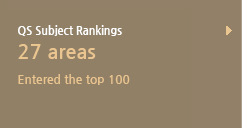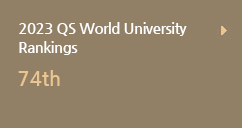
Korea University's official character 'GoGo'
Korea University Cat Shelter (GoGo Shelter) was created in 2015 by students who personally took care of stray cats living on KU campus, in order to more systematically help them. Since then, GoGo Shelter has become a formal club recognized by Korea University , and is currently taking care of stray cats in Korea University. It takes the lead in protecting animal rights by regularly arranging for TNRs (Trap-Neuter-Returns) on campus cats. In early December, before the full-fledged cold of winter began, I met volunteers and heard the stories of GoGo Shelter.
A club for the happiness of all of us,
not just a club for cat-lovers
“GoGo Shelter is a club for people who love cats and was created with the desire to closely monitor Korea University cats. However, GoGo Shelter is not just a club for cat lovers, but for the coexistence of KU students and cats. The main activity is feeding the cats, which keeps them from starving and at the same time reduces the amount of trash inside and outside the school. GoGo Shelter also regularly organizes TNRs to prevent an exponential increase in the number of cats.”
In addition, GoGo Shelter helps to organize treatment at the veterinary hospital if there is a sick or injured cat. The goal is not simply to take care of stray cats, but to build an environment where KU members and stray cats can live a pleasant life together.
“There are currently about 60 cat caregivers at GoGo Shelter. Except for special occasions, we don't meet as a group, and we individually feed the cats water and food on a rota. On-duty members are scheduled to check the amount of food they have and make sure that the cats are not sick. Not only club members but also schoolmates report through GoGo Shelter's Instagram that a certain cat may seem sick.”
In the past, the usual location of a cat's feeding place or where they sleep was disclosed, but these days it is not. This is because innocent cats are sometimes abused or worse by people who are uncomfortable with the idea of caring for stray cats.



“Feeding them human food can harm the health of cats, and if they are touched too much by humans, there is a possibility that their vigilance will be undermined and they will be subject to unwanted abuse. Cats on the natural sciences campus tend to follow people quite naturally, but cats on the humanities campus tend to be wary of people. Paradoxically, cats on the humanities campus are much safer than the cats that follow people. The closer a cat is to humans, the more vulnerable it is to abuse. While it did not happen at Korea University, in 2019 the horrible death of Yuja, a stray cat at Kookmin University, was a very big issue in the news. Having a stray cat abuser close to campus is a threat to all of us. We take care of stray cats and are always mindful to be careful and prudent.”

If there are previously unknown feline friends on the humanities and social science area, there is a 90% chance that they are Phantom's offspring
TNR, a must-have for coexistence
Taking care of a stray cat, which might be thought of as just a matter of giving love, sometimes brings unexpected problems and conflicts. For this reason, GoGo Shelter is working hard to spread a healthy stray cat care culture by devising stray cat care standards. Among them, TNR (our neutering project), which controls the population in order to ensure the coexistence of stray cats and humans, is the most important dimension of GoGo Shelter's work.
TNR is a project that entails trapping cats, neutering them, and then releasing them. Its purpose is to control the population of cats and to avoid abuse and hatred towards cats who are crying out when they are in heat, or at other times. The act of feeding stray cats is thoroughly planned and executed responsibly. Human food is avoided as much as possible and cat food and clean water is supplied in a container.
“If students who think the cats are adorable bring snacks like churu, obesity issues may arise. The cats may also suffer from stomatitis because they do not take care of their mouths, and tooth decay and plaque may easily gain a foothold. Solid snacks are only marginally better for their dental health.”




Through the club's official Instagram account you can communicate with classmates about things such as the daily life of cats on campus, get news of cats in need, and make reports of sick cats. Also, there are Instagram accounts dedicated to famous campus cats @ku_catshelter @ku_catshelter
Exceptionally harsh winter for stray cats,
Knock on the engine compartment before getting in your car.
Winter is harsher than any other season for stray cats. A large number of them do not survive the long winter as they often freeze to death. It is also difficult for them to drink water from taps or fountains where they could normally do so, as this water may be frozen. This year before winter arrives GoGo Shelter again created ‘winter houses’ to help stray cats survive the winter comfortably. During winter vacation, these cat shelters are given food and water every day in 9 locations on campus.
“Stray cats have a relatively short lifespan of 3-5 years. There are so many cats that couldn't make it through the winter and left us. So, among the campaigns for stray cats, there is something called ‘Safe Knock’. It helps cats to wake up if they have been sleeping in or around a car engine by knocking on the engine compartment before starting the engine on a winter morning.”
Most students at GoGo Shelter became involved because they like cats, because they are cute. However, as they do this work, they are gradually comforted by cats, feel a sense of responsibility for them, and think about how humans and animals can coexist in harmony.
“Actually, the campus is a bit desolate. Even after coming to college, with exams, competition for grades, and job difficulties looming, competition continues and there are not many things to feel happy about, but there are many people who feel comforted by interacting with cats. They are cats that don't stick around, but when you recognize them, follow them, and express that you're happy to see them, it seems that your exhaustion and troubles disappear. On difficult or stressful days, there are even friends who take a walk from the humanities and social science area to the natural sciences area just to see the cats.


Being a caregiver for someone
Students comforting each other and growing up
Caring for stray cats brings growth to both the caregiver and the cats that receive care. “If you have only received love, I think GoGo Shelter helps you learn to give it. While taking care of a cat, I realize that I am a person who can take care of someone too. If you bring a sick cat to the hospital, seeing her healthy and walking around can be so rewarding.”
Taking care of a cat as a student is not an easy task. Regular feeding, TNR, food service facilities, and shelters are all costly. Students receive sponsorship for the food, and make up for the lack of resources by selling their own handmade badges and stickers as souvenirs at events.
Stray cat care groups in various universities are working together to realize the dream of coexistence. There are more than 14 clubs that carry out activities aimed at caring for stray cats in universities in the Seoul metropolitan area alone, including Konkuk University's 'Kongnyang Kongnyang', Seoul National University of Science and Technology's 'SeoGoGo' (Thanks for caring, Seoul-Tech Cats), and Sahmyook University's 'DongHaengGil (The Way to be Happy with Animals). They go beyond simply feeding cats and engage in animal rights activities such as animal cruelty prevention campaigns, shelter operations, and vegetarian recipe sharing. Korea Animal Rights Advocates (KARA), an animal protection group, signed an agreement with the university stray cat care groups to form the ‘University Stray Cat Care Project’ in order to provide food and shelter funding to each university club and support the cost of neutering surgery.
The launch of GoGo Shelter in 2015 was the result of an accumulation of small steps, but now, starting with its success within the university, it is growing into an organization that practices a culture of coexistence that respects other lives and promotes harmonious coexistence. “Stray cats live in the urban ecosystem, and we plan to continue our public service activities so that they can live a happy life together with people. In the end, we hope that everyone realizes that the protection of animal rights is the way to save humans, and we will try to continuously become a club that thinks about and practices more and more the appropriate methods to achieve this.”




